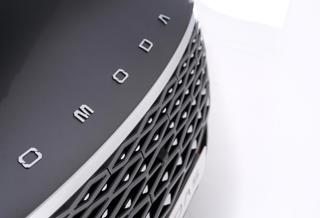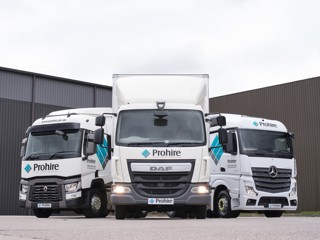Funding for UK businesses to invest in their fleets of trucks, vans and other commercial vehicles has increased by 24% in the last 12 months, says LPM Outsourcing.
Asset backed funding for commercial vehicles has jumped to £4.2billion (year to end September) up from £3.4billion in the previous 12 months.
The increase in investment in commercial vehicles is growing at a far faster rate than the 8% rise in asset based lending for all business investment over the same period.
LPM Outsourcing says that this growth in funding is being driven by Captives - finance companies run by vehicle manufacturers to help customers finance acquisitions of their products.
Ian Dennis of LPM Outsourcing explains that manufacturer owned captives are stepping into the breach left by the retrenchment of some of the mainstream banks.
Explains Ian Dennis: “Some of the banks are turning down more of the applications to fund investments by businesses in their commercial vehicles. That means manufacturers can’t sell their product and businesses can’t get the new more efficient vehicles that they need.”
“The solution for this is for the manufacturers’ Captives to shoulder more of the financing burden, to write more business and fill the hole left by the withdrawal of lending from some banks.”
“We are seeing a definite rise in the levels of business that we handle for captives and we have a number of enquiries from manufacturers that are considering setting up a captive for the first time.”
“Captives are taking on those deals that banks have now decided are too risky and they are taking on smaller deals that they would not normally have picked up.”
Dennis explains that because Captives have a far fuller understanding of the assets they are funding and the resale values, they can provide funding for a higher percentage of a vehicle’s value than a bank. As the Captive can take a vehicle back and resell it through their normal sales channel they can also get a higher resale value than a bank that will normally just put the vehicle up for auction.
In order to support sales activity and replace missing bank lending, Captives are increasingly adapting their business models and bringing lower costs trucks to market by offering funding for regulated transactions to penetrate the budget sector .
He added: “Smaller regulated transactions demand more paperwork and potentially further investment in infrastructure, however if manufacturers can reduce costs through outsourcing then these deals can still work very well.”
LPM Outsourcing also says that the increase in finance is driven by those UK businesses that have decided that they can no longer delay investment in the trucks and vans that are the public face of many organisations.
“Businesses might try to keep running machinery past its best but if your customers associate your company with old and tired vans or trucks then that is going to lose you sales,” concluded Dennis.
“By adapting the business model, captives are able to ramp up market presence and increase market share, thereby maintaining profit margins in a market where the whole industry is in a state of flux.”
Businesses are also investing in new more fuel efficient vehicles that will cut their running costs and meet the more stringent new European emissions of Euro 5 and Euro 6 standards required for commercial vehicles.
Rising fuel costs, stricter environmental controls and a saturated market, means that captives have to adapt their business models and offer new solutions to their customers as the industry moves towards globalization.





















Login to comment
Comments
No comments have been made yet.